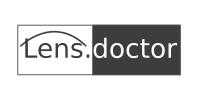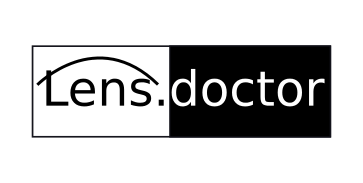What is Orthokeratology?
- Orthokeratology is the process of gently reshaping the front surface of your eye to correct nearsightness and other vision conditions. Specially designed sophisticated contact lenses are used to gently reshape the front suface of your eyes, and correct your nearsightedness.
- Orthokeratology lenses are worn at night to gently reshape and enhance your vision while you sleep, similar in a way to the way retainers are worn at nightime for orthodontics
- Orthokeratology lenses are removed in the morning providing clear daytime vision
What are some of the advantages of Orthokeratology over other forms visual correction?
Compared to soft contact lenses you will experience.
- No daytime contact lens wear. Orthokeratology lenses are worn at night
- No dislodged or lost soft lenses during the daytime, especially during sports.
- No drying out effect that some soft lenses are prone to at the end of the day.
- A chance to proactively slow down any increases your nearsightedness.
Compared to eyeglasses, you will experience
- No blurry vision from scratched, dirty, or smudged eyeglass lenses
- No limitations in peripheral vision from frames
- No broken eyeglasses during physical activities
- A chance to proactively slow down any increases your nearsightedness.
Compared to laser eye correction such as LASIK, orthokeratology is:
- Reversable
- Temporary
- Less expensive
- Does not weaken the structural integrity of the eye's corneal surface
- Non-surgical
Is Orthokeratology safe?
- Orthokeratology is approved by the FDA.
- When any contact lens is worn, there is a small risk involved. We expect the of wearing orthokeratology lenses is the same or lower than with soft contact lenses.
Why haven't I heard more about Orthokeratology?
- Fitting and treatment with orthokeratology lenses require additional time and expertise that not all practices are not willing to devote
Are there different names for Orthokeratology?
Orthokeratology has different names for the brand names of the lenses and techniques used, some of them include..
- CRT – Corneal Refractive Therapy.
- Vision Shaping Lenses
- Nightime Lenses
- Wave Lenses
What is Myopia control?
- Myopia control is the process of using approved medical and biomedical techniques to limit the progression of nearsightness in an individual.
- Newer research shows the success in reducing myopia when patients are fit with orthokeratology lenses
- Orthokeratology is the only practical solution available in the United States currently that also provides clear daytime vision and myopia control without eyedrops!
Is Orthokeratology expensive?
Orthokeratology costs vary based on the visual requirements of the patient. Our practice is competitive for fees charged in this area. Give us a call and we can provide more details.
Will my insurance plan cover orthokeratology?
Some insurance plans may provide partial benefits if they also cover the cost of contact lenses. Since all plans are different, you would have to check with your insurance plan's representatives.
Why aren't more eye doctors performing Orthokeratology?
- Evaluation, customization and optimization of treatment requires additional time, effort, and expertise. Not all eye doctors are in practices where they have the liberty to provide the time-consuming, individual care needed to insure the best outcomes with Orthokeratology
Is orthokeratology permanent?
No, it’s temporary. If you stop wearing the lenses regularly while you sleep, your vision will return to its original state in as little as 72 hours.
What should I expect during the 7 to 14 day treatment process?
It’s important to understand that during the short treatment process, old glasses or daytime contacts will no longer be the appropriate prescription. Managing your vision during the treatment process may involve reinsertion of the new orthokeratology contact lenses for part of the day, or your eye care professional may choose to use temporary soft disposable lenses. Your eye care professional will discuss the options for visual correction during this temporary period of time.
How often will I have to replace my orthokeratology lenses?
In general the orthokeratology contact lenses will have to be replaced about once a year. In certain patients protein buildup may mean replacing lenses more than once a year.
Is taking care of my orthokeratology lenses difficult?
Care for orthokeratology lenses is fairly easy. Daily cleaning, and storing in a disinfection solution is generally the normal procedure. We will instruct you in the details
Are orthokeratology lenses irritating to wear?
No, orthokeratology lenses are not painful. You will have some initial awareness of the orthokeratology lenses in your eyes. While you are sleeping you will not feel the lenses or any sense that they are changing your eyes.
Are there age restictions for orthokeratology?
Or office is currently using the Paragon CRT® Contact Lens system. The "FDA placed no age restrictions on candidates for orthokeratology with Paragon CRT® Contact Lenses. It’s a great option for children and teens that are involved in sports or other extra-curricular activities. Adults also enjoy the freedom of Paragon CRT® Contact Lenses and even those that may be presbyopic (requiring reading glasses or bifocals), may still be great candidates with monovision and Paragon CRT® Contact Lenses."
After a thorough eye exam, we will fit you with Paragon CRT® Contact Lenses based on you needs and activities.
Are orthokeratology lenses difficult to apply or remove?
No, they are no more difficult to insert or remove than any other type of contact lens.
If I stop wearing my orthokeratology lenses will my vision return to normal?
Yes but it might take a few days, depending on the amount of your pre-treatment prescription.
What happens if I lose or damage a orthokeratology contact lens?
Orthokeratology with Paragon CRT® Contact Lenses is different than wearing regular daytime contact lenses. If you discontinue wear for one night, your vision may be impaired the next day. Previously worn glasses or daytime contact lenses may not help and replacement is necessary. Having a spare pair of Paragon CRT® Contact Lenses is strongly recommended. Please ask your eye care practitioner for additional information.
I have been told I have "dry eyes" Am I still a candidate for orthokeratology?
Yes. Even with "dry eyes" orthokeratology may be an excellent choice. We would have to evaluate the type of dry eye and the severity. Keep in mind, since orthokeratology lenses are only worn at night, any dryness previously from daytime lens wear may be eliminated.
I used to wear contacts but I stopped because my eyes were irritated. Am I still a candidate for orthokeratology?
Yes. Since orthokeratology lenses are worn at night while you are sleeping, discomfort that you normally experienced while wearing contact lenses during the day should be eliminated.
I have been told I have "Astigmatism". Am I a candidate for orthokeratology?
Orthokeratology contact lenses are designed to correct nearsightedness with up to a moderate amount of astigmatism. We can determine you eligibility based on recent eye exam results.

